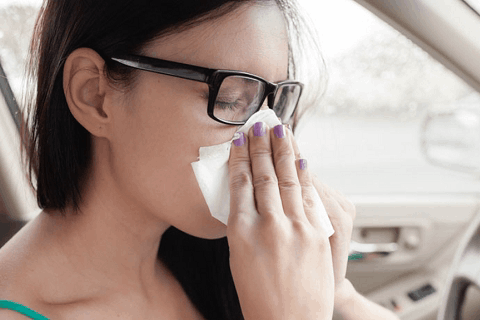
Sneezing is your body's way of removing irritants from your nose or throat. A sneeze is a powerful, involuntary expulsion of air. Sneezing often happens suddenly and without warning. Sneezing can be triggered by a variety of things, including allergens, viruses, such as the common cold or flu, nasal irritants or inhalation of corticosteroids through a nasal spray.
Allergies are an extremely common condition caused by your body’s response to foreign organisms. Under normal circumstances, your body’s immune system protects you from harmful invaders such as disease-causing bacteria.
If you have allergies, your body’s immune system identifies typically harmless organisms as threats. Allergies can cause you to sneeze when your body tries to expel these organisms.
What causes you to sneeze?
Part of your nose’s job is to clean the air you breathe, making sure it’s free of dirt and bacteria. In most cases, your nose traps this dirt and bacteria in mucus. Your stomach then digests the mucus, which neutralises any potentially harmful invaders.
Sometimes, however, dirt and debris can enter your nose and irritate the sensitive mucous membranes inside your nose and throat. When these membranes become irritated, it causes you to sneeze.
Sneezing can be triggered by a variety of things, including:
• allergens
• viruses, such as the common cold or flu
• nasal irritants
• inhalation of corticosteroids through a nasal spray
If you experience continued sneezing, consult a doctor, check IGE levels in blood (IGE Test). If IGE levels are high, then a Comprehensive Allergy Test to be done to know the cause.